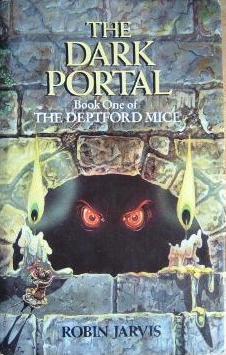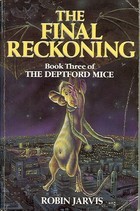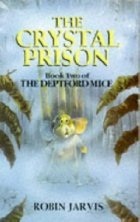There was a point, just towards the end of The Final Reckoning, the third in the remarkable Deptford Mice trilogy by Robin Jarvis, that I knew that I did not want it to end. I will not give you spoilers for that moment for, if you are not familiar with them then you need to experience it for yourself, but it was one of those moments that you feel deep inside of you. One of those moments where, I think, story happens. You’ve forgotten the world around you, you’ve forgotten the thousand little jobs you have to do and the deadlines that loom because all that you are is here, in this book, in this moment.
I’ve been a fan of Robin Jarvis’ work for a long while, discovering him first through The Whitby Witches, which I read as a child, and then devouring all of the other books he ever wrote. There are prequels (squeakuels?) to the Deptford books which move forward and backwards and somehow everywhere at once. They pull apart the rich seams of fantasy within this series and explore the untold stories left within. I come to all of them regularly, every few years or so, and devour the lot. Squirrels. Mice. Bats. Rats. Arcane, magical, big stories. Unashamed bigness.
Back in the nineties, before certain bestsellers were bestselling, children’s literature was in something of a lull. Good books existed, of course, but they were not yet the big ones. We had not yet reached that moment in culture where every film seemed to be based on a children’s or young adult book and we had still not yet regained that post-war brave new world vibrancy. I often think that the Deptford mice and the Whitby books were ahead of their time. They entered this world and quietly remade it into something big and delicious and suffered, I think, from being at a point just before things happened. But that is what blogging is for, that is what wandering through the second hand book shops is for, finding those quiet books that changed the world and throwing a spotlight upon them once more.
I find the Deptford Mice books different every time I come to them. Memory makes us remember a book, and sometimes we read the memory rather than the book itself. For a while I did precisely that, remembering beats and echoes as if they came out of the fog, and then – all of a sudden – I read the book. There is a moment, I think, where you engage with what is front of you with everything that you have. You lock onto the story. You cast the world aside. You let it go and do so willingly for what you have, what you have – here – is better than anything you could possibly imagine.
For a long time I did not think I read fantasy. I remember telling a friend about this, saying that I did not really do fantasy as a genre because I really didn’t think I did and then I realised all of a sudden that I did and I was an idiot. I had read books about witches and magic and an Abbey that looked out to the sea. I had read about a white mouse with pink ears called Oswald and a grey mouse called Piccadilly and Audrey and Arthur and Twit and Thomas Triton, and I had loved every inch of them. I had read fantasy books, I had loved them, I had loved them.
I had loved them because they scared me, because they told me of gods who switched faces and walked amongst the living, because they conjured darkness on the streets at the seaside where I’d had ice-cream, and because they had been unafraid to give me darkness. The Deptford Mice books are bloody and raw and violent titles that don’t hold back from the truth of the world. They trust in the reader. They trust in the reader so much.
And I had loved these books because they gave me hope. And now, as I look back, I can see that they inspired me. There are characters in How To Be True that can trace their trajectory to Aunt Alice in the Whitby books, or that, for me, talk directly to the dark, raw complexity of the Starwife in the Deptford books. But I think that’s what you do as a reader, you take stories with you and you see the world through their pages and after a while, that story comes to story you.
(I think you can see the patterns as well, of where an author has been in their work, the books that made them who they are, and I take great pleasure in making those patterns visible in my own. No book is an island. Everything is connected).
And so here I am, page-finished and done with mice and yet, I know it’s not over. I’ll pass these copies onto the charity bookshop when I’m done because I know I’ll meet them again some time, at the right time. Books move through the world from reader to reader, shelf to shelf. They’ll find me again and I’ll buy them all at once, grabbing them from the shelf in a breathless, hysterical fashion, because I know what’s to come.
And then, whenever it is, I’ll cancel everything.



One thought on “Looking at The Deptford Mice books by Robin Jarvis”